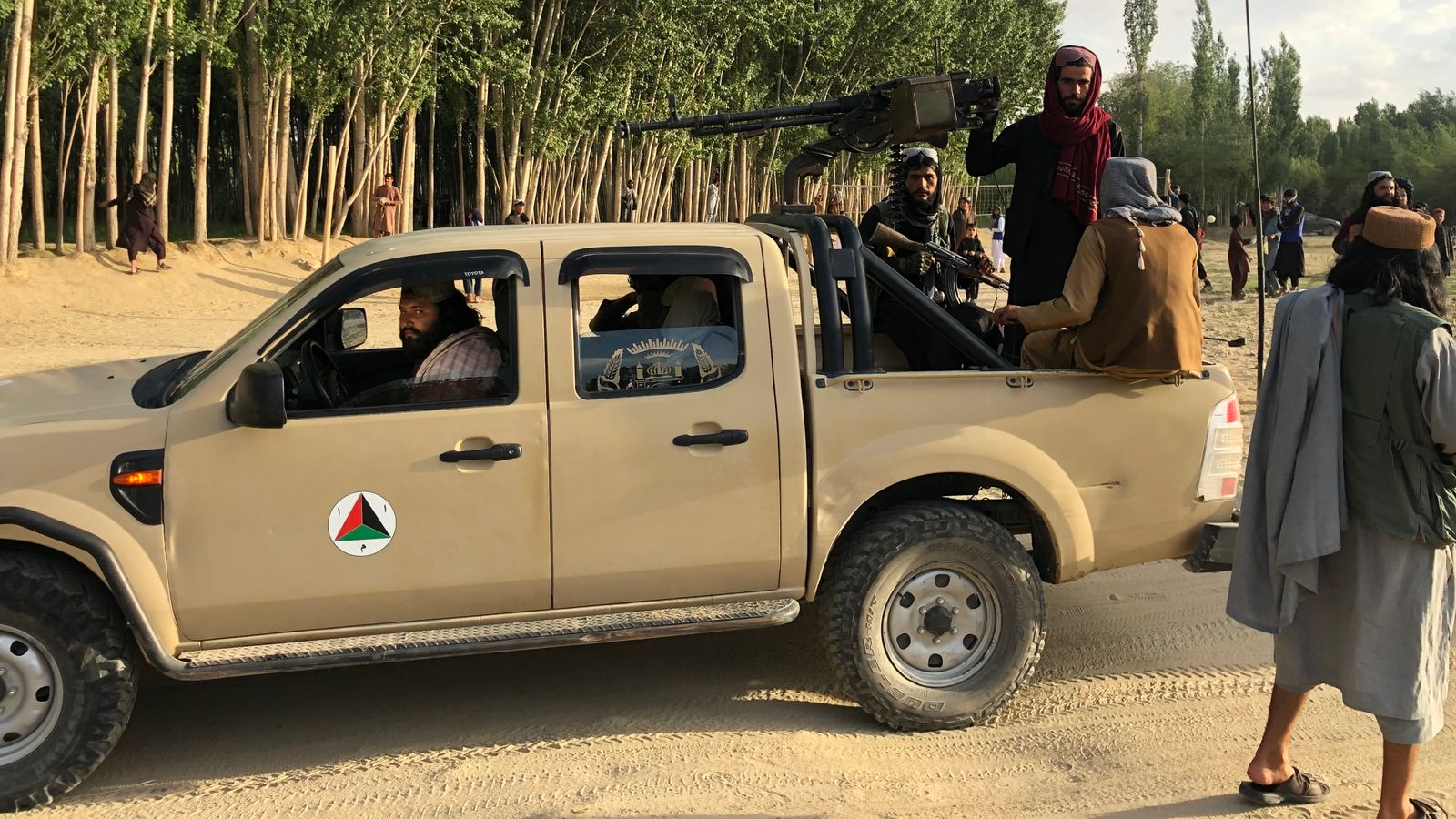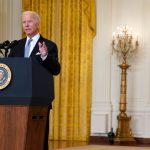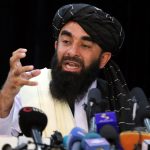Taliban militants are continuing to make rapid military advances across Afghanistan as western forces withdraw after two decades of conflict.
The Islamist insurgents now claim to control 85% of the country having overrun areas bordering five countries – Iran, Tajikistan, Turkmenistan, China and Pakistan – prompting Afghan security personnel to flee.
At least 56 civilians have been killed in Afghanistan in the last week alone, according to the World Health Organisation.
Please use Chrome browser for a more accessible video player
Head of the UK armed forces General Sir Nick Carter has described the situation as “pretty grim”, as Boris Johnson signalled the end of Britain’s military mission in the country.
Paying tribute to the “valour and sacrifice” of troops who had served in the long struggle against the Taliban, the prime minister insisted the UK was not abandoning its commitment to Afghanistan and would continue to provide development and security funding.
Meanwhile, the Taliban has sought to reassure Russia and other nations in the central Asia region that it did not pose a threat and insisted it would so all it could to stop the terror group Islamic State (IS) operating on Afghan territory, while seeking to wipe out drug production.
It has also been reported the Taliban is discussing a possible ceasefire with the Afghan government and would halt its offensive if talks in Doha are successful.
Please use Chrome browser for a more accessible video player
At the same time, Moscow has called on all sides to show restraint and warned it would act decisively to prevent conflict on the border if necessary.
China is evacuating its nationals in the face of the deteriorating situation on the ground.
As well as assurances on IS, the Taliban has sought to strike a conciliatory tone, insisting that all the country’s people should have the right to a decent education, having previously used deadly violence to stop girls going to school.
“We want all representatives of Afghan society… to take part in creating an Afghan state,” said a delegation in Moscow.
It came after US President Joe Biden strongly defended his decision to pull military forces out of Afghanistan despite large parts of country being overrun by the Taliban and his acknowledgment a new civil war could erupt.
Please use Chrome browser for a more accessible video player
While the US would maintain diplomatic and humanitarian support, he said the Afghan people had to decide their own future and that he would not commit another generation of Americans to the 20-year conflict.
Mr Biden has set a target date of 31 August for the final withdrawal of US forces, although about 650 troops will remain to provide security for the US embassy in Kabul.
Please use Chrome browser for a more accessible video player
A sceptic of the military presence in Afghanistan, Mr Biden said America had long ago achieved its original reason for invading the country in 2001, which was to root out al Qaeda militants and prevent another attack like that launched on 11 September that year.
Osama bin Laden, who masterminded the devastating atrocity on New York’s World Trade Center, was killed by US forces in neighbouring Pakistan in 2011.
Follow the Daily podcast on Apple Podcasts, Google Podcasts, Spotify, Spreaker
Mr Biden said: “I made the decision with clear eyes.
“I will not send another generation of Americans to war in Afghanistan with no reasonable expectation of achieving a different outcome.”
He argued the Afghan government should seek a peace deal with the Taliban.
“The likelihood there’s going to be one unified government in Afghanistan controlling the whole country is highly unlikely,” he added.






















